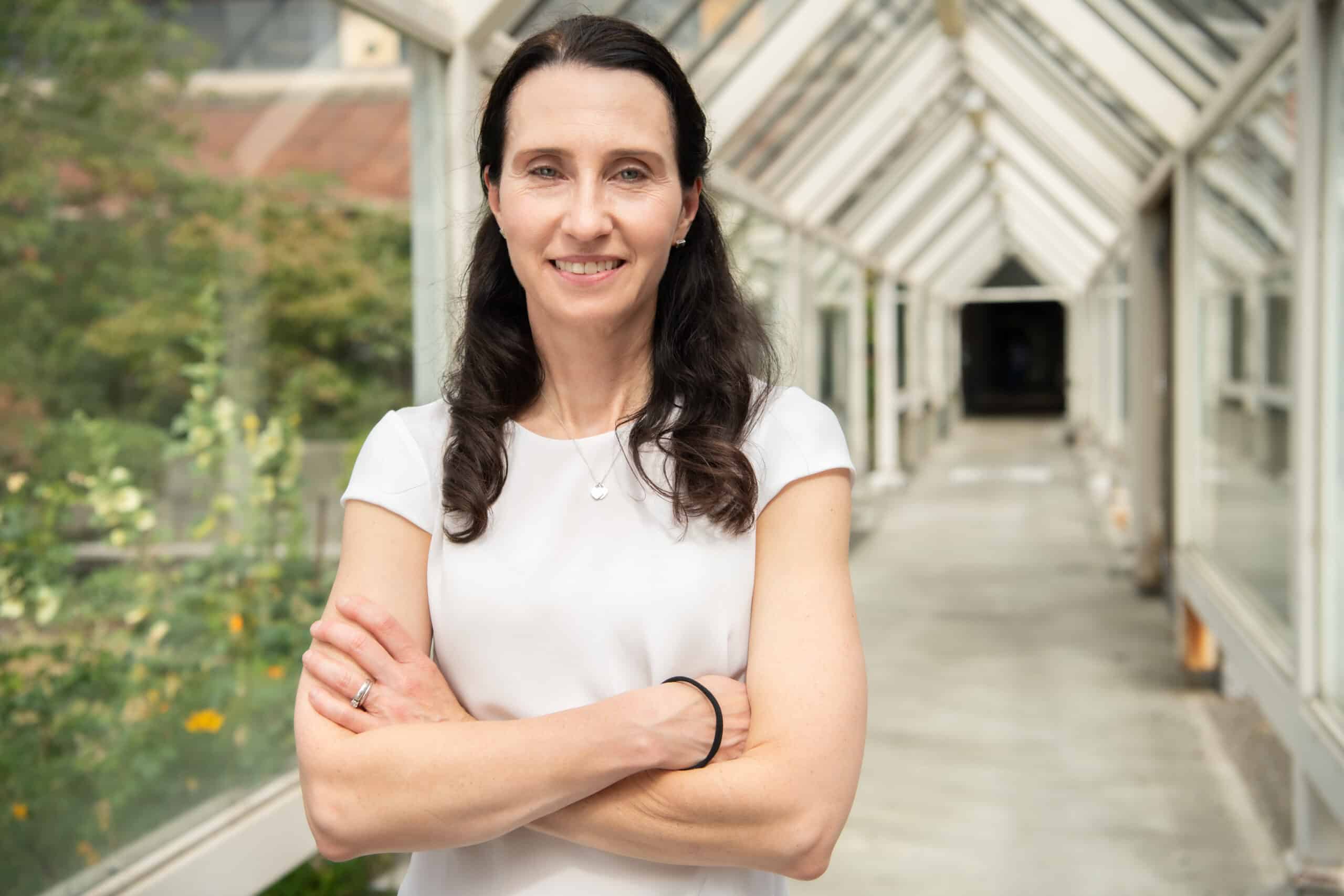Dr. Shannon Jackson, medical director of St. Paul’s Adult Bleeding Disorders Program and the lead for valued-based health care (VBHC) at Providence Health Care (PHC), heads a team at PHC that provides specialist interdisciplinary care to people with inherited bleeding disorders across BC and the Yukon.
Caring for a chronic complex population over a long period of time, she’s seen firsthand the impact of making the right decisions for a patient – and, conversely, the wrong ones.
“It’s an incredible time with many options of novel treatments and exciting outputs of medicine and research,” she says. “But the basics, the fundamental principles of how you deliver health care, are not necessarily being optimized across our entire health care system.”
The desire to improve long-term patient outcomes is partly what led her to pursue a Master of Science in Health Care Transformation at the University of Texas–Austin. The focus: value-based health care.
VBHC is about improving patients’ health outcomes with the resources at hand.
“I came out of this master’s believing change is possible again.” —Dr. Shannon Jackson, medical director of St. Paul’s Adult Bleeding Disorders Program.
“VBHC really tries to get us thinking about the results,” Dr. Jackson says. “We consider the patient over a continuum, not just when they show up today in the clinic or when they’re admitted to the hospital. We think about the trajectory of their care from the community and primary care and home all the way through and back. Most importantly we need to align and understand what health outcomes that matter to patients with what the care team is able to deliver.”
“For example, as a practicing hematologist, I focus a lot on blood test results such as red or white blood cell counts. While those test results are critical to measuring disease or response to treatment they are not a direct measure of health or how a person is functioning with their blood condition over time. Are they able to do the things in life they wish to do? How much pain or suffering are people experiencing over time? These elements of health are just as important as test results and are usually discussed but not directly measured along the care journey. They should be. The focus on measurement of health outcomes that matter for patients is a strength of value-based health care, and it is possible for the health care system to start focusing on them.”
Recently the master’s program brought together 45 specialists from different health systems and backgrounds – from physicians to patient advocate workers and physiotherapists – to explore the importance and impact of VBHC over a 12-month period.
“Imagine if you sent a nurse, a doctor, a physio, and others with health care skills to learn this together— that would be so powerful. They would come back with so much knowledge and experience that would spread like spores within their respective teams who would feel that inspiration and that hope.”
Dr. Shannon Jackson, medical director of St. Paul’s Adult Bleeding Disorders Program
“You can’t read a book or listen to one talk and know how to begin and sustain the transition towards value-based health care. You need to learn and master a new set of skills. You need mentorship in a community for that,” Dr. Jackson says. “That’s what the master’s degree provided.”
Being connected to so many brilliant colleagues inspired Dr. Jackson while also giving her hope that there are opportunities to improve patient care. Its impact didn’t end when she completed her master’s, either; the program focused on how graduates might enlist others into this method of training and perform their work at scale once back in their roles.
Dr. Jackson explains that the system needs a complement of people—the right team, in the right setting—who understand and can use it fully.
“We need people from all vantage points—medical, nursing, allied health – who understand those things and then can begin to shift,” she says.
She is hopeful that more of her colleagues at PHC will be able to take the master’s program in the future.
